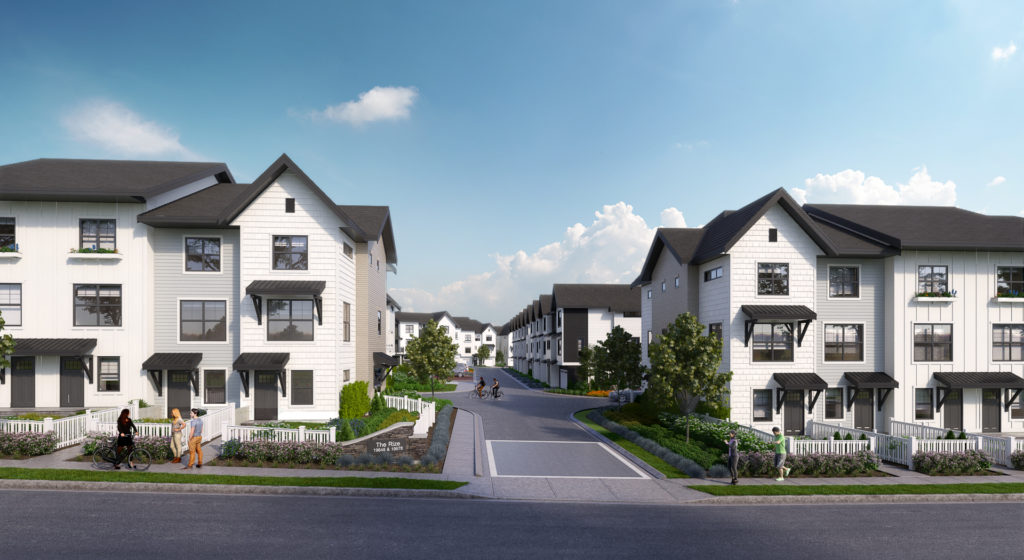Buying a home is an exciting process, and often an emotional one. Before you start your home search, get organized by asking yourself six basic questions to narrow down the many potential options.
Identifying the answers before you even start house-hunting will empower you to make a decision that’s best for you and your family, while avoiding any costly mistakes.
1. What are your personal and financial goals?
For many of us it’s the same old song and dance when it comes to saving money for a purchase. Both the 11-year-old who wants a new video game and the adult buying that first home know the challenges in trying to save up for something that, for the moment, is financially out of reach.

Here are our simple tips to factor homebuying into your finances:
- Start off by considering what you want to achieve in the short, mid, and long term, both personally and financially – you don’t want to make yourself miserable by only focusing on saving money, allowing no spending on personal joys
- Commit to achieving your big financial goals by setting SMART ones (specific, measurable, achievable, relevant and time-bound), which lend well to planning the actual steps involved in getting there
- Develop a strategy and utilize resources such as an inspiration board or app
- Create a reasonable budget that will get you to your financial goal while leaving enough for the other important aspects of your life
- Constantly monitor your success as you save
2. How much can you afford to spend?
Before you begin your new home search, it’s important to know how much you can afford to pay. A new house isn’t going to be enjoyable if money is always tight once you move in.
Shop for mortgage rates, and find a broker who can assess your finances and help present you with the mortgage option that best suits your needs. Doing this will allow you to spend your house-hunting time productively, looking only at homes that are within your predetermined budget or range.
Getting preapproved for a mortgage is helpful when you make an offer on a house, and it gives you a firmer handle on how much you can afford.
How to get started with a mortgage:
- Assess your financial health: what is your credit score, and do you have any current debt, employment or income issues
- Shop around with at least three lenders or a mortgage broker, to increase your chances of getting a low interest rate
- Scan their reviews and testimonials, ask to speak to a past client – don’t forget to consider broker recommendations from family and friends
- Have a face-to-face meeting to go over questions such as who they use for a lender, their fees and what value they will provide
It’s also important to remember that your mortgage payment isn’t the only expense that comes with owning a home. Create a housing budget where you can incorporate other expenses such as yearly taxes, landscaping and yard work, cleaning out dryer vents and gutters, changing out air filters, replacing batteries in smoke and carbon monoxide detectors, and other upkeep costs.
3. Is it a good time to buy?
“There’s no time like the present” is a great notion in some scenarios, but not always when it comes to homebuying.

Housing market and savings aside, there are considerations such as job security and your current lifestyle. Is your job stable, or could you find yourself unemployed in a year’s time with monthly mortgage and maintenance payments? Are you ready to stay in one place for a long period, and do you have kids or family members to consider when it comes to size and location?
4. Should you use a Realtor?

Hiring a Realtor has many benefits, and can relieve much of the stress when it comes to the homebuying process.
A Realtor will provide information about available properties and sources of financing, and familiarize you with the steps you must take in order to complete the buying process. Realtors can also be a great resource when it comes to connecting you to trusted home inspectors, contractors, appraisers and notaries.
Before hiring a real estate agent, find out about their track record: how busy are they, and what is their knowledge of your desired neighborhood? Having a Realtor referred to you by a friend or family member could also be a great route to take, and will give you an idea of what service to expect from them.
5. Where should you buy?
It’s important to consider the needs of all the people living in your new home and how it will affect their daily activities. What impact will the location have on your family, now and in the future?
Drive through neighbourhoods you like to see what’s for sale, attend open houses for homes that grab your interest, and spend time in the area enjoying parks, restaurants or recreation to get a sense of the lifestyle and community.

Consider these factors to help you determine where you should purchase:
- Area – City, Suburbs, Rural
- Facilities – Recreational facilities, hospitals, shops, schools, dining
- Future Developments – Are there any future zoning plans you may not like?
- Transportation – Availability and access to transportation, commute times, cost of parking etc
6. Should you buy a new or resale home?

The all-new Foundry townhome community in Langley West.
On your home search journey you may be presented with new and resale homes. It can be a tug-of-war when trying to decide which you prefer (or if it matters). By overviewing key factors you’ll be able to make an informed choice.
- Buying in a new housing community will often attract a like-minded group of homebuyers, as the developer has usually marketed to a target audience and built accordingly
- When buying in a new community you can be sure everything will be up to the current standards and if any repairs arise, they will likely be covered by the new home warranty
- Older neighbourhoods where resale homes are found often have an array of residents from young families to retirees
- It’s inevitable that you will consistently spend more time and money on the maintenance of a home as it gets older
- On the other hand, new homes can typically cost more per square foot than a resale home would
Weigh out your preferences for location, character, resident demographics, and whether you want a simple turn-key or are happy to put some extra effort into getting your new home up to scratch.
Recommended Reading for Buying a Home
Check out this step-by-step workbook and checklist that will guide you in detail through the homebuying process
Visit the Real Estate Council of British Columbia website
Visit the Canada Mortgage and Housing Corporation website
Follow Miracon on social media to regularly get more tips like these.